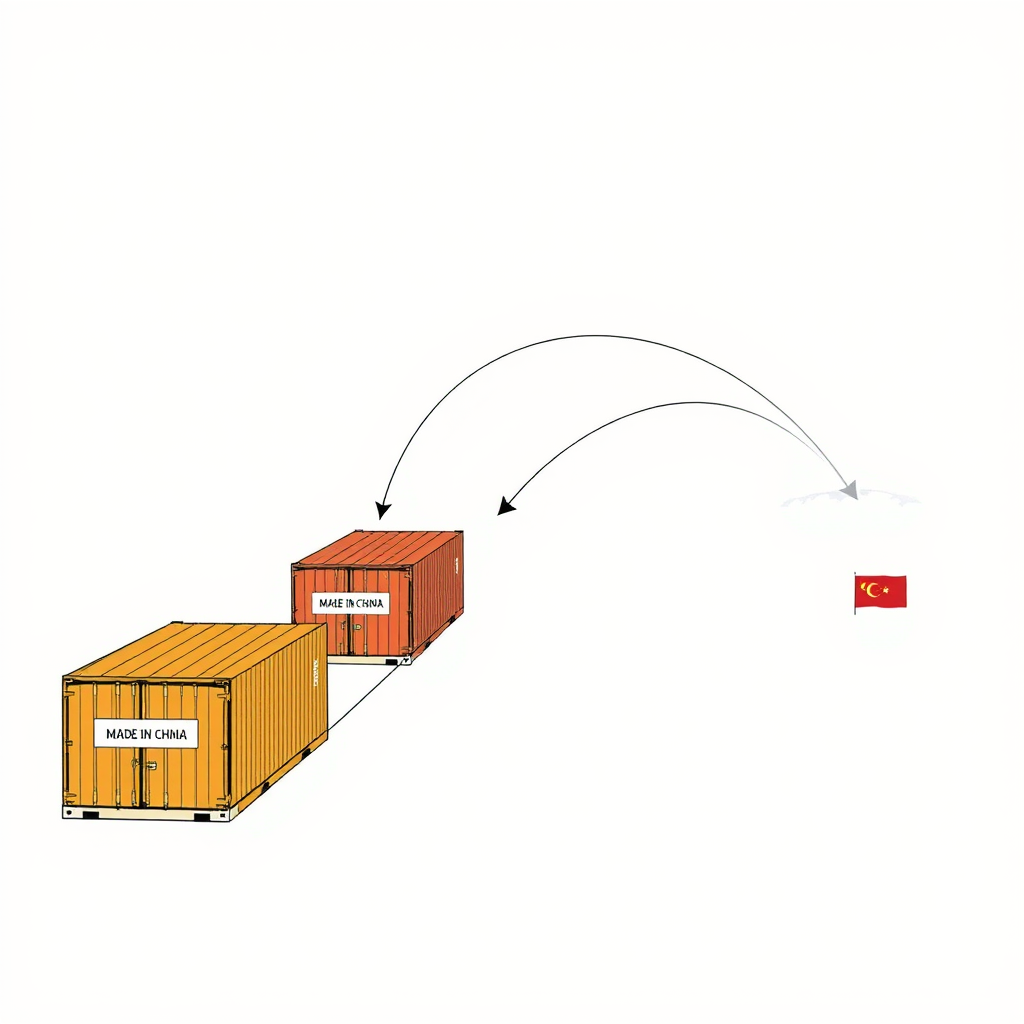Tariffs Skirted: China Hides Goods From US

Chinese companies are actively circumventing U.S. tariffs imposed by the Trump administration through a practice of mislabeling goods’ country of origin, according to a new wave of reports and confirmed by industry insiders. Faced with substantial tariffs – up to 145% on some imports – exporters are routing shipments through third-party nations to disguise their Chinese provenance, effectively exploiting loopholes in U.S. trade law.
The tactic, dubbed “origin washing” and openly advertised on Chinese social media platforms, involves shipping goods to countries like Malaysia and South Korea for brief transit, falsely claiming them as originating from those nations. U.S. law stipulates that goods must undergo “substantial transformation” in another country to legitimately change their declared origin, but advertisements promise “smooth customs clearance” regardless.
The Financial Times first reported on the proliferation of these services, highlighting how companies are leveraging the practice to mitigate the financial impact of the tariffs. Sarah Ou, a salesperson at Baitai Lighting, explained the strategy: “We can sell the goods to neighboring countries, and then the neighboring countries sell them on to the United States, and it will reduce [the tariff].”
Evidence suggests the practice is gaining traction. South Korea’s customs agency reported seizing $21 million worth of goods with falsified origins in the first quarter of this year, the vast majority originating from China and destined for the U.S. Vietnamese and Thai authorities are also taking steps to tighten origin checks, responding to concerns about the increasing trend.
One manufacturer in Dongguan, China, candidly admitted to relying on these intermediary services. “Basically I only ship to a Chinese port and they take it from there,” she said, adding that agencies assure smaller businesses like hers that these “grey areas” offer a viable path to navigate the tariffs.
This situation underscores a critical flaw in the tariff strategy. While intended to pressure China and protect American industries, the tariffs are proving easily circumvented, potentially undermining their effectiveness and creating unfair competition for businesses that adhere to trade regulations. It’s a clear demonstration that tariffs, while a blunt instrument of trade policy, often create unintended consequences and incentivize creative, if not entirely ethical, workarounds. The reliance on origin washing not only distorts trade flows but also raises questions about the long-term sustainability of this approach and the need for more robust enforcement mechanisms to ensure fair trade practices.